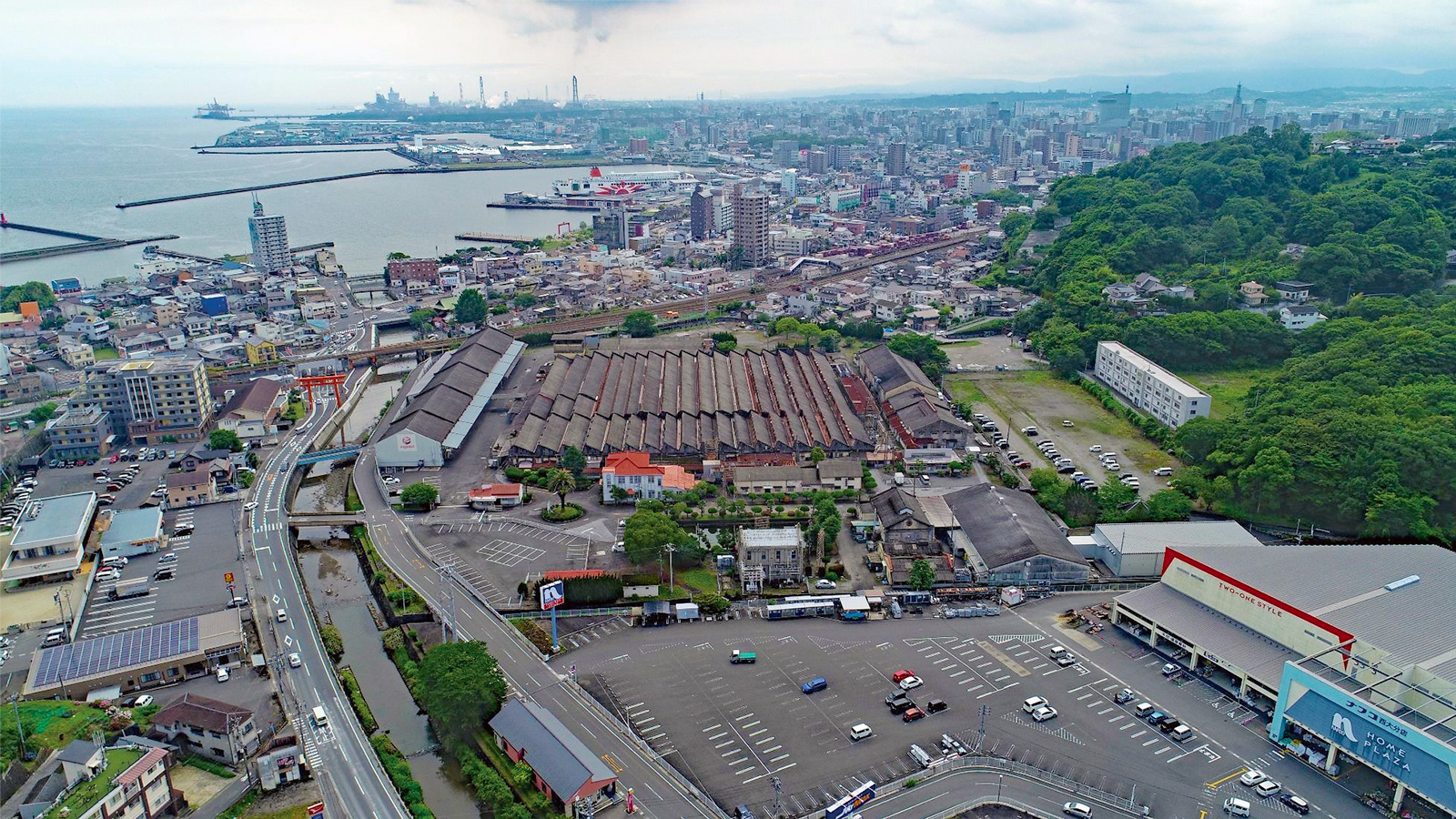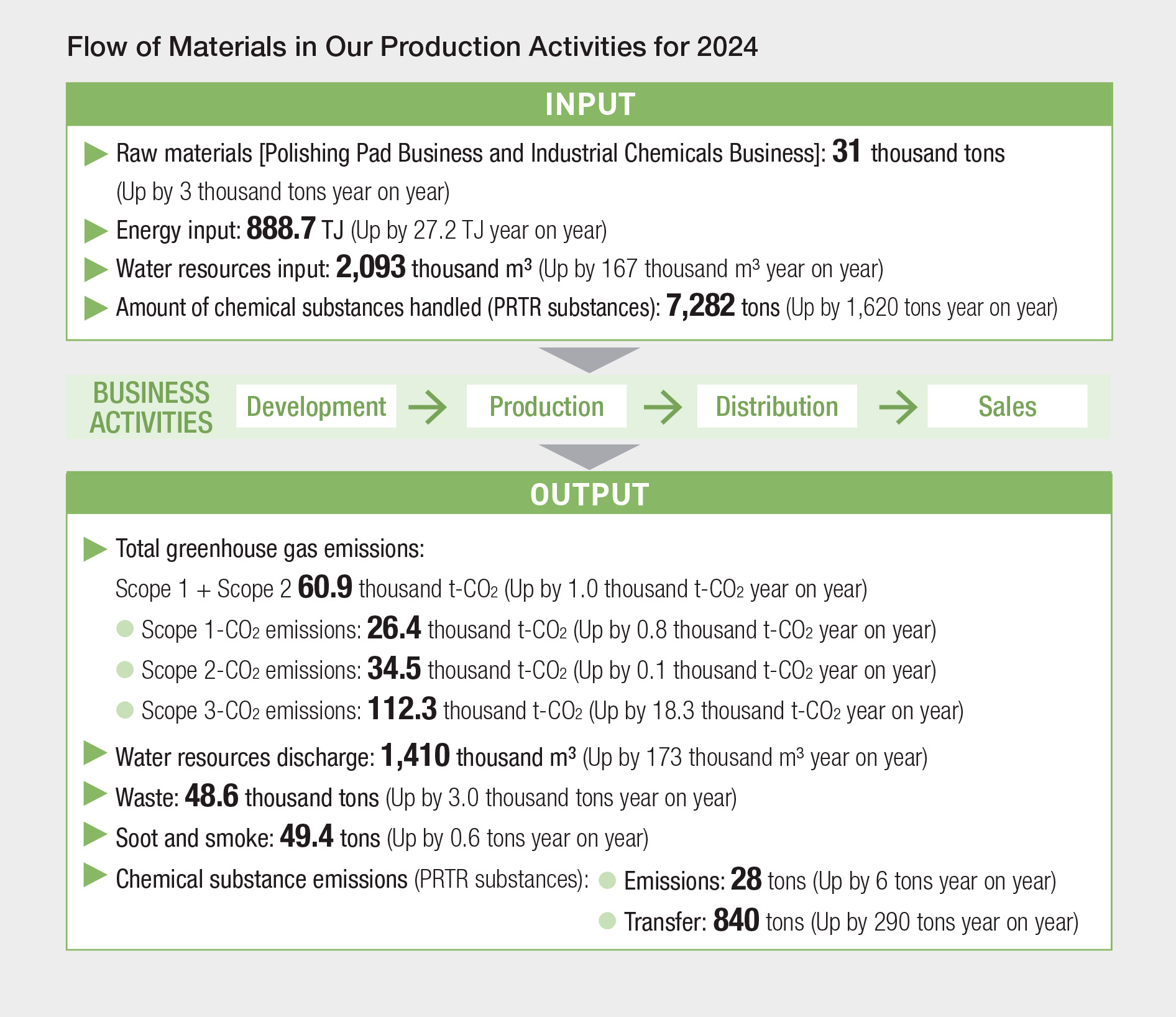Environmental Initiatives
Basic Concept

In order to reduce our environmental loads and to fulfill our corporate social responsibility, the Fujibo Group has established an environmental policy and has set a management strategy to resolve issues through our business. Our Group recognizes that global environment issues, which have become urgent issues in the international community, are of the top priority, and strives to achieve our corporate philosophy “we are committed to realizing a more prosperous and sustainable future for people, society and the global environment.” Specifically, we are promoting efforts to reduce the environmental loads at each of our business sites, including preservation of air and water environment, preservation of biodiversity, resource saving or reduction of waste, and proper management of chemical substances.
Environmental Policy
Basic Philosophy
The Fujibo Group will work together to realize its corporate mission of "we are committed to realizing a more prosperous and sustainable future for people, society and the global environment."
Basic Policy
1. Compliance with environmental laws and regulations
The Group will comply with environmental laws and regulations, and agreements we have agreed upon.
2. Responding to climate change
The Group will give due consideration to the mitigation of climate change and adaptation to the effects of climate change.
3. Consideration for biodiversity
The Group will give due consideration to the preservation of the environment such as natural systems, and the maintenance and conservation of biodiversity.
4. Effective use of resources and energy
Recognizing the finite nature of resources and energy, the Group will strive for waste control, reuse, recycle, and make effective use of waste.
5. Establishment of an environmental management system
The Group will strive to continuously enhance and improve its environmental management system.
6. Dissemination and disclosure of environmental policies
We will widely disclose this environmental policy as well as inform all employees of the Group.
Priority Themes of Environmental Activities
The Fujibo Group incorporates the following items in its management strategy as priority themes of environmental conservation and focuses on achieving each initiative.
1. Reduction of greenhouse gas emissions
The Fujibo Group’s greenhouse gas emissions from energy use consist of only CO₂ (carbon dioxide), with no emissions of CH₄ (methane), N₂O (dinitrogen monoxide) or other gases. We will continue to actively promote the shift to renewable energy to further reduce greenhouse gas emissions.
2. Efforts to reduce the environmental loads of water resources
At each of our business sites, we implement environmentally-friendly drainage treatment using the activated sludge process and in compliance with laws including the Water Pollution Control Act and the Sewage Act. We also are actively working on the efficient use of water resources.
3. Promotion of the reduction of industrial waste
We are promoting detoxification by incineration of industrial waste such as waste liquid (organic pollutant) generated in the production process. We process unstable chemical substances internally to enhance safety, and reuse some of them as energy resources as fuel for incineration equipment.
4. Reduction of the environmental loads of chemical substances
The Group properly manages the amount of PRTR substances (chemical substances that are subject to the PRTR) handled, released, and transferred. We are also working on activities together with our customers to reduce our environmental loads.
5. Efforts for resource recycling and energy saving in operation
With the understanding of the finite nature of resources and energy, we are working on energy-saving activities and also promoting the reduction, reuse and recycling of waste.
Overview of the Environmental Loads of Business Activities
The Fujibo Group monitors the amounts of energy and chemical substances used in business activities, as well as the emissions of CO₂ and waste, to get an overall picture of the environmental activities each fiscal year to assess the achievement of our targets.
